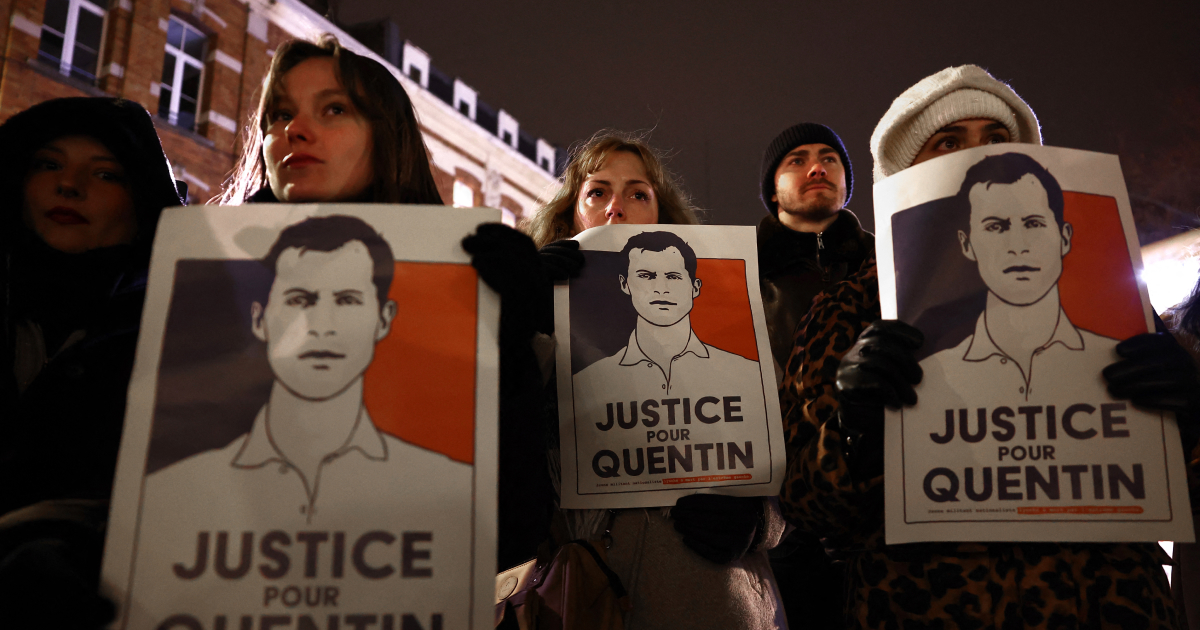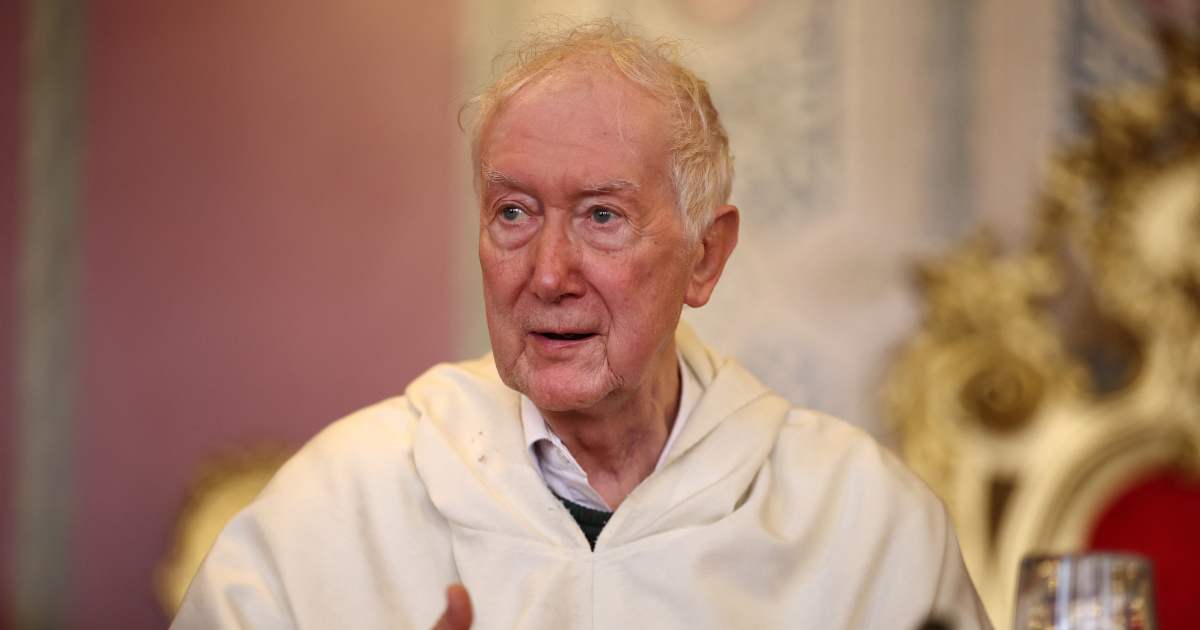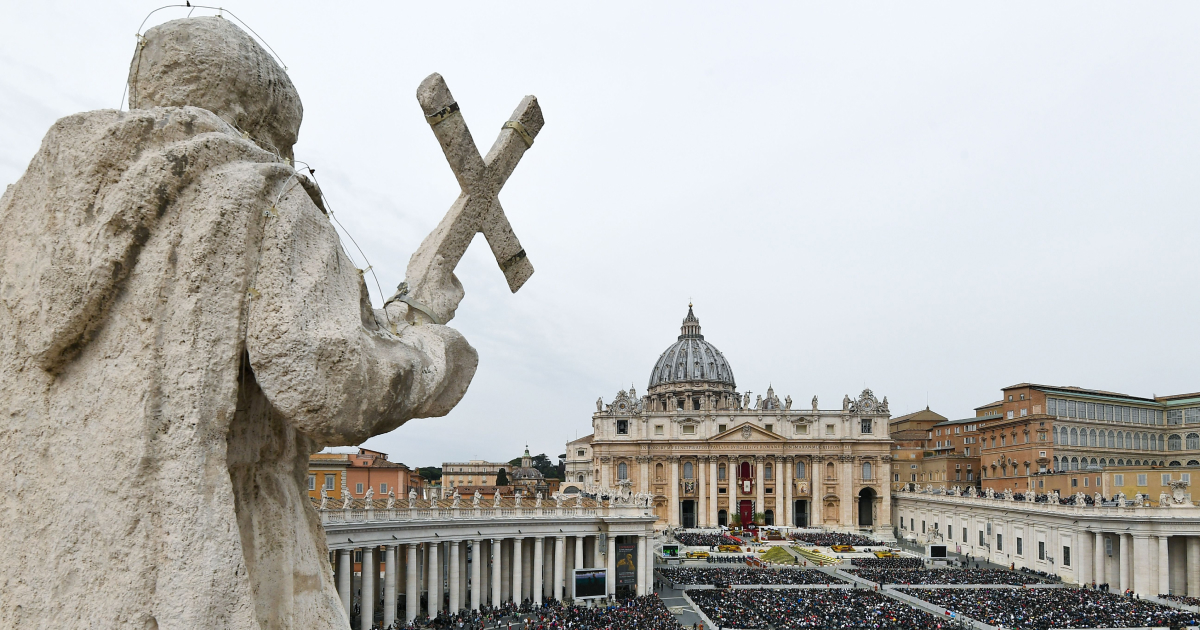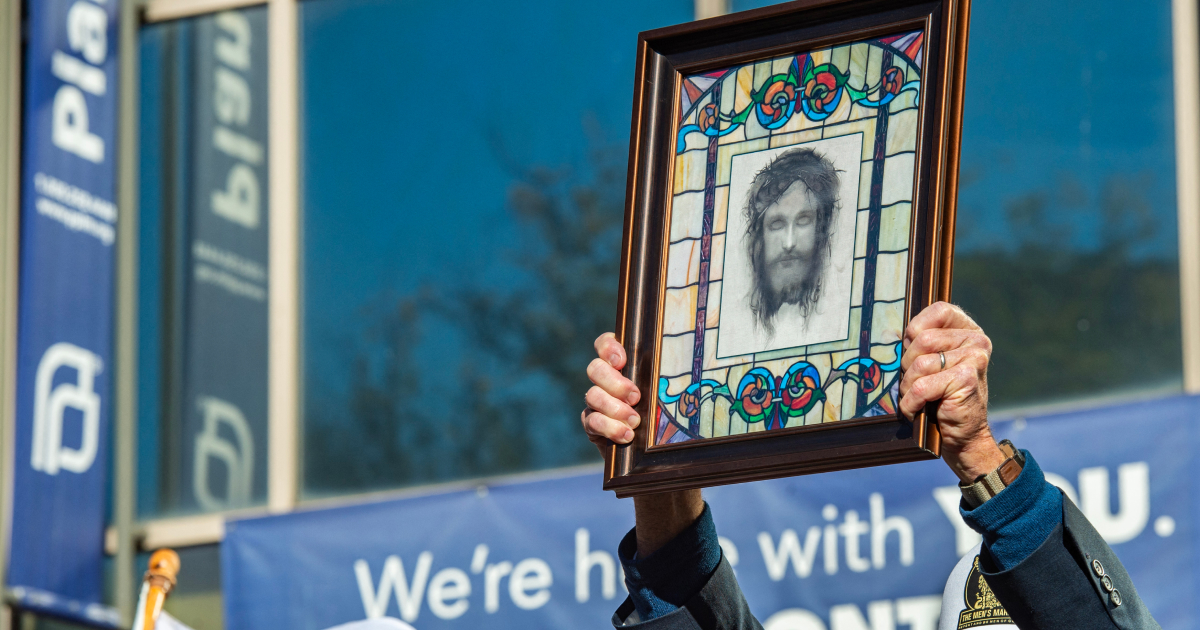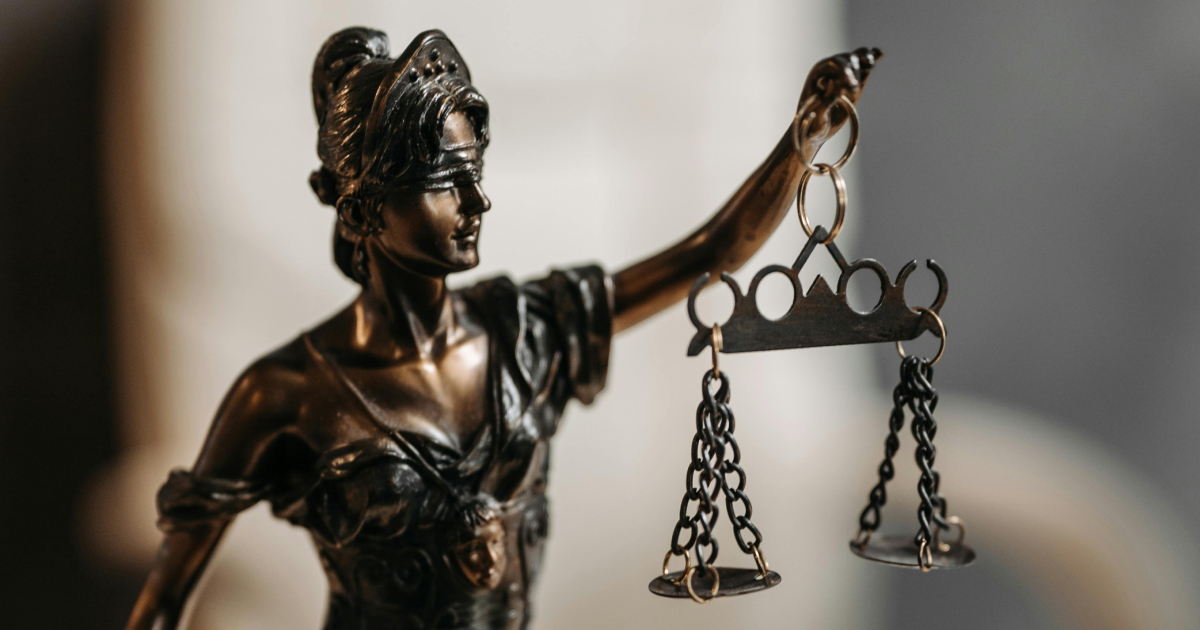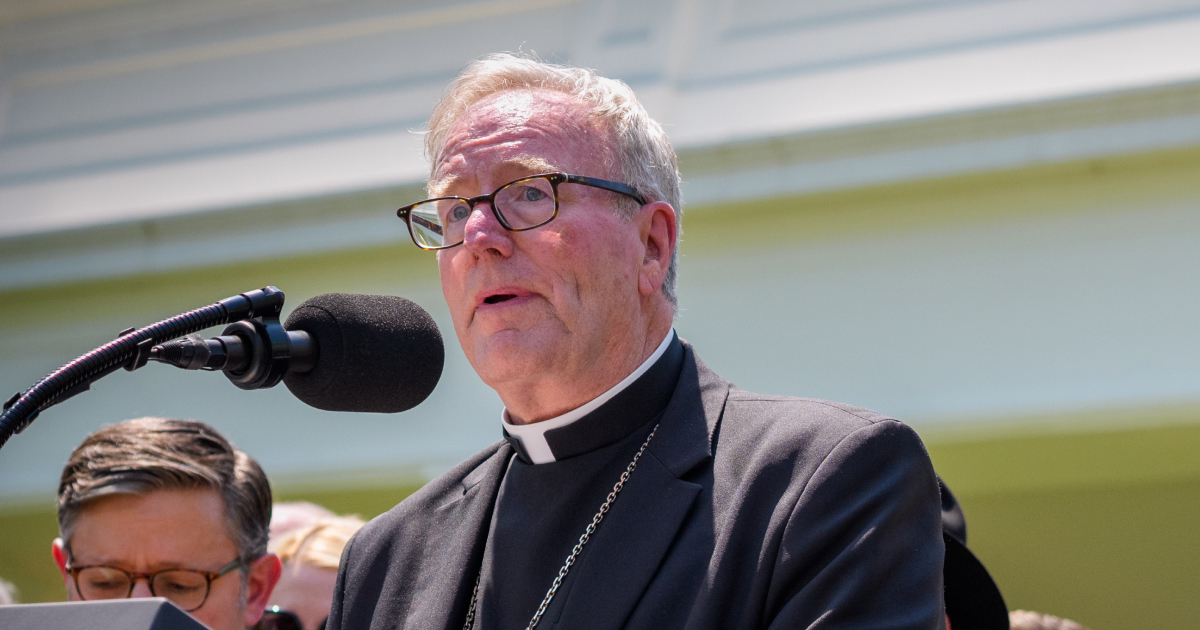"Do you want an audience with the Pope?” asked Vatican “fixer” extraordinaire Dr Peter Bahou, owner of New York-based Peter’s Tours, while we were doing an interview at the Kolbe Hotel in Rome a few weeks ago. “I have two spare tickets.” With Amanda Bowman, who chairs the Catholic Herald Institute in New York, I jumped at the opportunity.
I duly dressed in a dark suit and tie, and at 7.30 the next morning we were led through clipped topiary past the austere Casa Santa Marta, where the Holy Father actually lives as opposed to the
Apostolic Palace; a white-and-yellow papal flag hung above the entrance. We then passed the entrance to the Ufficio Scavi, the catacombs under the great basilica where the tomb of St Peter lies.
Everywhere there seemed to be young papal Swiss Guards, dressed in their Renaissance-style ceremonial uniforms of blue, red and yellow pantaloons. “Don’t be fooled,” our guide told us. They may only carry ceremonial halberds, but ever since the assassination attempt on John Paul II in 1981 all guards are trained in deadly SAS-style unarmed-combat techniques.
Our red tickets stated “Audiencia Generale”, and the space at the front of St Peter’s Square was filled with 1,000 or so plastic chairs. The group of girls in front of us – young pilgrims from Springfield, Illinois – were dressed in nylon orange football shirts emblazoned, bafflingly, with “Jesus, Number 7”. One girl nibbled a piece of toast while we waited.
When Pope Francis arrived in his open-top white Popemobile, what impressed me was how the vehicle had been adapted to climb up steps. This has become necessary as his mobility problems have increased, but as John L Allen argues in his excellent piece on the literary genre of forecasting the outcome of conclaves, His Holiness shows no sign of abdicating on health grounds. He has just signed up for a tour in September of Indonesia, Papua New Guinea, East Timor and Singapore.
Peter Bahou, our early-morning Vatican guide, is the Arab-Christian entrepreneur behind the 20-year transformation of a former Franciscan priory near the Forum, where the Polish priest, writer and martyr St Maximilian Kolbe – the patron saint of journalists – lived when he was in Rome before the Second World War. It is now a comfortable modern hotel, named after the saint, for pilgrims coming to Rome.
It was Kolbe who warned that “the deadliest poison of our age is indifference”. This line was quoted by David Alton – a great British parliamentary champion of life issues – at his recent Westminster speech to the Napa Institute of America. Led by its founder, Tim Busch, the US Catholic leadership forum brought a delegation to London in April, as we report in “Chesterton”.
Lord Alton also referred to Benedict XVI’s statement during his address in Westminster Hall back in September 2010, standing close to where St Thomas More had stood trial and been condemned to death “to all intents and purposes – for being a faithful Catholic”.
“Don’t forget your story,” Pope Benedict said.
“Retain the vestiges of Judeo-Christian society.” His encouragement was one reason Lord Alton and others, helped by funding from US benefactors like Leonard Leo, founded the Christian Heritage Centre at Stonyhurst in Lancashire – to ensure that people do not give up on our shared Christian heritage and identity. It is an aim the Herald very much shares. “We are confronted by angry atheism on one hand and radical Islam on the other,” Lord Alton said. “Pope Benedict encouraged us to be quietly confident and not be frightened to say what we believe and why. Invoking Thomas More, he reminded us that the faithful laity have a duty to be involved in public life, even if at times it can be very tough.”
Our cover story by Paul Goodman, another Catholic member of the House of Lords, deals with the prospect of Britain’s first avowedly atheist prime minister in Sir Keir Starmer – should Labour win the general election later this year, as seems likely. In America the religious vote is likely to count for a lot this November; in the UK, alas, it is increasingly unlikely to count at all.
This was a point discussed with the Napa Institute group during their visit. In addition to being an influential US Catholic power-broker, Tim Busch is also a Californian wine-maker. His own Trinitas Cellars aims “to craft wine that’s so compellingly delicious that the joy it brings creates a window in time where worries are melted away, virtues are celebrated and life is savoured”. We hope to work together more with the Napa Institute in the future.
This article originally appeared in the May 2024 issue of the Catholic Herald. To subscribe to our award-winning, thought-provoking magazine and have independent and high-calibre counter-cultural Catholic journalism delivered to your door anywhere in the world click here.
"Do you want an audience with the Pope?” asked Vatican “fixer” extraordinaire Dr Peter Bahou, owner of New York-based Peter’s Tours, while we were doing an interview at the Kolbe Hotel in Rome a few weeks ago. “I have two spare tickets.” With Amanda Bowman, who chairs the Catholic Herald Institute in New York, I jumped at the opportunity.
I duly dressed in a dark suit and tie, and at 7.30 the next morning we were led through clipped topiary past the austere Casa Santa Marta, where the Holy Father actually lives as opposed to the
Apostolic Palace; a white-and-yellow papal flag hung above the entrance. We then passed the entrance to the Ufficio Scavi, the catacombs under the great basilica where the tomb of St Peter lies.
Everywhere there seemed to be young papal Swiss Guards, dressed in their Renaissance-style ceremonial uniforms of blue, red and yellow pantaloons. “Don’t be fooled,” our guide told us. They may only carry ceremonial halberds, but ever since the assassination attempt on John Paul II in 1981 all guards are trained in deadly SAS-style unarmed-combat techniques.
Our red tickets stated “Audiencia Generale”, and the space at the front of St Peter’s Square was filled with 1,000 or so plastic chairs. The group of girls in front of us – young pilgrims from Springfield, Illinois – were dressed in nylon orange football shirts emblazoned, bafflingly, with “Jesus, Number 7”. One girl nibbled a piece of toast while we waited.
When Pope Francis arrived in his open-top white Popemobile, what impressed me was how the vehicle had been adapted to climb up steps. This has become necessary as his mobility problems have increased, but as John L Allen argues in his excellent piece on the literary genre of forecasting the outcome of conclaves, His Holiness shows no sign of abdicating on health grounds. He has just signed up for a tour in September of Indonesia, Papua New Guinea, East Timor and Singapore.
Peter Bahou, our early-morning Vatican guide, is the Arab-Christian entrepreneur behind the 20-year transformation of a former Franciscan priory near the Forum, where the Polish priest, writer and martyr St Maximilian Kolbe – the patron saint of journalists – lived when he was in Rome before the Second World War. It is now a comfortable modern hotel, named after the saint, for pilgrims coming to Rome.
It was Kolbe who warned that “the deadliest poison of our age is indifference”. This line was quoted by David Alton – a great British parliamentary champion of life issues – at his recent Westminster speech to the Napa Institute of America. Led by its founder, Tim Busch, the US Catholic leadership forum brought a delegation to London in April, as we report in “Chesterton”.
Lord Alton also referred to Benedict XVI’s statement during his address in Westminster Hall back in September 2010, standing close to where St Thomas More had stood trial and been condemned to death “to all intents and purposes – for being a faithful Catholic”.
“Don’t forget your story,” Pope Benedict said.
“Retain the vestiges of Judeo-Christian society.” His encouragement was one reason Lord Alton and others, helped by funding from US benefactors like Leonard Leo, founded the Christian Heritage Centre at Stonyhurst in Lancashire – to ensure that people do not give up on our shared Christian heritage and identity. It is an aim the Herald very much shares. “We are confronted by angry atheism on one hand and radical Islam on the other,” Lord Alton said. “Pope Benedict encouraged us to be quietly confident and not be frightened to say what we believe and why. Invoking Thomas More, he reminded us that the faithful laity have a duty to be involved in public life, even if at times it can be very tough.”
Our cover story by Paul Goodman, another Catholic member of the House of Lords, deals with the prospect of Britain’s first avowedly atheist prime minister in Sir Keir Starmer – should Labour win the general election later this year, as seems likely. In America the religious vote is likely to count for a lot this November; in the UK, alas, it is increasingly unlikely to count at all.
This was a point discussed with the Napa Institute group during their visit. In addition to being an influential US Catholic power-broker, Tim Busch is also a Californian wine-maker. His own Trinitas Cellars aims “to craft wine that’s so compellingly delicious that the joy it brings creates a window in time where worries are melted away, virtues are celebrated and life is savoured”. We hope to work together more with the Napa Institute in the future.
<strong><strong>This article originally appeared in the May 2024 issue of the <em>Catholic Herald</em>. To subscribe to our award-winning, thought-provoking magazine and have independent and high-calibre counter-cultural Catholic journalism delivered to your door anywhere in the world click</strong> <mark style="background-color:rgba(0, 0, 0, 0)" class="has-inline-color has-vivid-cyan-blue-color"><a href="https://catholicherald.co.uk/subscribe/?swcfpc=1">h</a></mark><a href="https://catholicherald.co.uk/subscribe/?swcfpc=1"><mark style="background-color:rgba(0, 0, 0, 0)" class="has-inline-color has-vivid-cyan-blue-color">ere</mark></a>.</strong>








